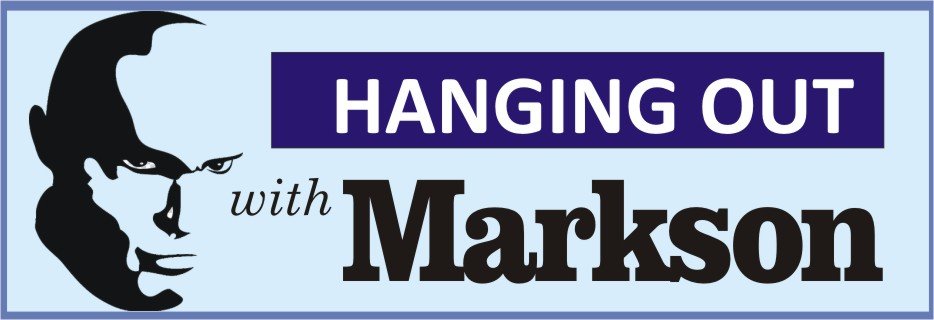 Port Harcourt — The black soot menace in Port Harcourt has made it clear that it’s not only nature that abhors vacuum. Humans do too. Since last year, I have received countless self-help messages and anecdotes on how I can save myself in the soot problem that worsens by the day in the Garden City. In the absence of definitive guidance on what has become a challenge with environmental, social and health dimensions, “experts” of every hue have stepped in to fill the gap with health hints and tips offered at no cost to the unwary recipient. Yours truly has been bombarded with such messages, but the most interesting came from a classmate who I knew shared my trepidation of Biology classes in our secondary school years. Now, assuming the air and authority of a medical man who knows his onions, my fellow Biology-fearing classmate tells me to, among other things, shut my windows, bathe and wash my hands regularly, reduce my time outdoors and wear a mask. I’m tempted to even wear a face mask! Without a choice, I obey. But I do hope he doesn’t take it too far and advise me to stop breathing in Port Harcourt, because that will be a welcome excuse to unmask him and remind him of his past!
Port Harcourt — The black soot menace in Port Harcourt has made it clear that it’s not only nature that abhors vacuum. Humans do too. Since last year, I have received countless self-help messages and anecdotes on how I can save myself in the soot problem that worsens by the day in the Garden City. In the absence of definitive guidance on what has become a challenge with environmental, social and health dimensions, “experts” of every hue have stepped in to fill the gap with health hints and tips offered at no cost to the unwary recipient. Yours truly has been bombarded with such messages, but the most interesting came from a classmate who I knew shared my trepidation of Biology classes in our secondary school years. Now, assuming the air and authority of a medical man who knows his onions, my fellow Biology-fearing classmate tells me to, among other things, shut my windows, bathe and wash my hands regularly, reduce my time outdoors and wear a mask. I’m tempted to even wear a face mask! Without a choice, I obey. But I do hope he doesn’t take it too far and advise me to stop breathing in Port Harcourt, because that will be a welcome excuse to unmask him and remind him of his past!
Seriously speaking, the soot menace compounds the already daunting challenge of air pollution in Nigeria. During World Pneumonia Day on 12 November 2021, UNICEF disclosed that Nigeria had “the highest number of overall air pollution-related pneumonia deaths of children under-five in the world, and the highest number of household air pollution-related pneumonia deaths among children under-five.” Separately, it was reported that Nigeria had the second highest number of “overall air pollution-related deaths in the world,” behind India. As far back as 2017, precisely a year after the black soot was noticed in Port Harcourt, medical doctors warned that the six million or so residents of Rivers State “faced the risk of cancer of the lung and other respiratory problems, following the never-ending raining of cancerous hydrocarbon elements, commonly referred to as black soot on their environment.” The health challenge is visible and too serious to be swept under the carpet.
As we know, the black soot (fine particles of dust) is released into the atmosphere through the activities of unscrupulous elements who crudely refine crude oil in the creeks. These die-hards don’t pretend about their lack of the requisite knowledge, skills and equipment; they mindlessly go about their operations, and when things wrong, as they often do, they pay with their lives and limbs. The survivors, blinded by the allure of quick and easy money, press on with the mission to grab and destroy. The extent of the losses they inflict on you and I is staggering. According to reports, Nigeria lost not less than $3.5 billion revenue to crude oil theft in 2021 alone, representing about 10 per cent of the country’s foreign reserves. In nearly 50 years of oil and gas exploration, the sector accounts for over 65% of total revenue to the government, and the impact of losing 10 per cent of this key source of cash is better imagined than said. And so it is that, Nigeria, Africa’s largest oil producer with a total production capacity of 2.5 million barrels per day, continues to suffer in the hands of the crooks in the creeks.
After stealing our resources, they endanger our health of which the statistics already cited give a good idea. Then, as if the economic and health implications are not damning enough, the crude oil thieves and illegal artisanal oil refiners also jeopardise our future. In addition to the health challenges we’re seeing, medical practitioners say the carcinogens released into the air and which people breathe, will give rise to complications in births even as ailments become more pronounced. In effect, the black soot problem endangers our today and tomorrow. I do not think government – local, state and federal – need further motivation to swing into action on this problem. This is a problem that does not respect status or boundary; it does not respect mansions or shanties; it does not fear gates or guns; everyone, the leader and the led is at risk. Just breathe, as you must, and you are a potential victim.
The black soot problem is another hostage situation. Like kidnappings and terrorism in parts of Nigeria, a tiny section of the population has succeeded in holding all of us hostage. We are in their strangulating grip. Boko Haram use religion to kill and maim; for crude oil thieves, the justification is money. They are the suicide bombers of the Niger Delta! No ransom will satisfy them; no dialogue will make them to see reason and change their mind. They understand only one language: The force of the law.
Follow us on twitter



